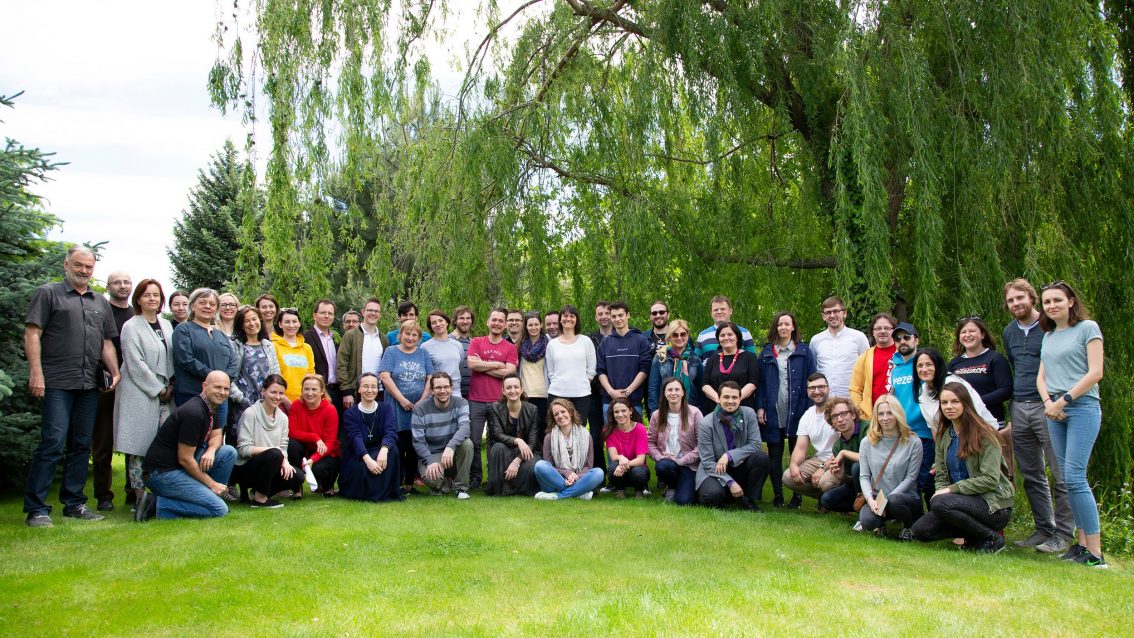Five Projects Have Advanced into the EDUaccelerator
The EDUcamp programme has been completed. See how the event turned out and which 5 projects have advanced into the EDUaccelerator.
At the end of May, we held the EDUcamp as part of this year’s Generation 3.0 programme cycle. It was attended by 16 finalists selected out of the 58 submitted projects. Over the course of two days, they, together with education and business experts, sought ways to disseminate their innovative educational approaches to other schools and integrate them into the education system.
The EDUcamp programme was very rich. The finalists had an opportunity to participate in workshops and individual consultations with 16 mentors, including, for instance, Matej Ftáčnik, a co-founder of VacuumLabs.com and The Spot. In the Silicon Valley, he had helped Slovak startups expand from the startup scene. Saskia Repčíková, who had been featured in the Slovak Network of Social Innovators in 2016 for her contributions in the field of education development, also offered her experience. Gábor Bindics, who had built the cycling delivery service Švihaj šuhaj and later the popular cultural centre KC Dunaj, worked with our finalists, too. The topics of the consultations and workshops focused on financial management, communication, fundraising, leadership, and team development, strategy setting, goals, as well as impact measurement.
EDUcamp is not the end
Based on the evaluations made at the EDUcamp, we selected 5 organisations out of 16 finalists, who are now joining the 3-month mentoring-educational programme at the EDUaccelerator. Moreover, accelerator participants have an opportunity to receive grants in the amount ranging from 5,000 to 15,000 euros to support their activities.
Which projects have advanced to the EDUaccelerator?
Project: Extending the DofE Programme to All Young People
Organisation: The Duke of Edinburgh’s International Award Slovakia
A comprehensive development programme which, through setting personal goals and with mentor’s help, gives young people a chance to develop their character traits, fulfil their potential and succeed in life. Read more about the project here.
Project: I and Money
Organisation: Junior Achievement Slovakia
The programme aims to increase pupils’ financial literacy in a playful way – through the main character Philip and by using examples from practice. Read more about the project here.
Project: Schools That Change the World
Organisation: Institute for Active Citizenship
A training and mentoring programme which focuses on the professional development of social science teachers and pupils’ civic competences. The programme contributes to creating a new form of civic education and strengthening the democratic climate at school. Read more about the project here.
Project: Open Schools
Organisation: Open Society Foundation
Trained volunteers discuss with pupils topics such as human rights, democracy, the functioning of the state, racism and extremism, and thus motivate the pupils to participate in school life and decision-making. Read more about the project here.
Project: Through Dramatic Education and Knowledge of the Past to a Better Future
Organisation: Post Bellum SK
Through dramatic education, the project acquaints pupils and students with the historical and cultural realities of Slovakia, develops their social and emotional intelligence, communication and argumentation skills, and critical thinking, and teaches them understanding and tolerance. Read more about the project here.
We are staring in September
At the EDUaccelerator, each of the five above-mentioned organisations will receive a personal mentor who will help them set the approach as efficiently as possible and achieve their goals. Besides, participants will gain access to vocational training, educational activities tailored to their individual needs, tailor-made consultations, networking, and financial assistance.
After the end of the 3-month accelerator, there comes an impact measurement phase. In cooperation with experienced education researchers, we research the selected approaches to validate effectiveness and efficiency. The aim is to disseminate to schools the projects which demonstrably develop pupils’ skills, knowledge and attitudes necessary for a life in the 21st century.






